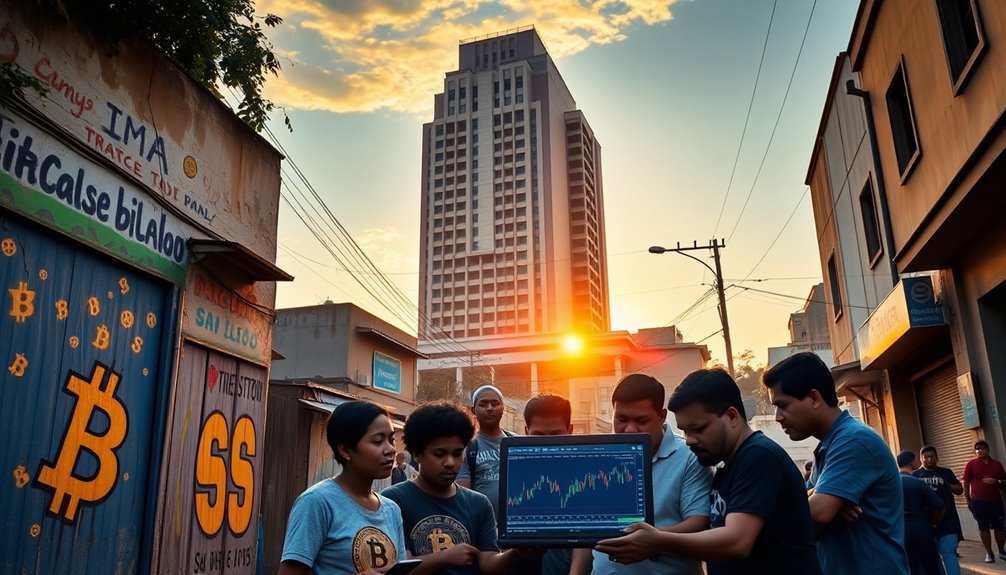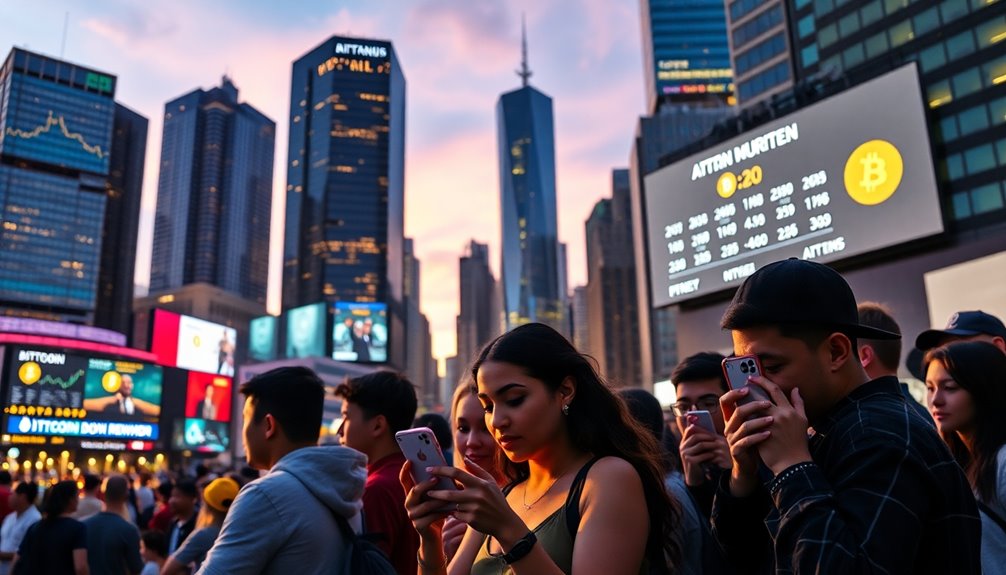You might find it interesting that the IMF plans to regulate El Salvador's Bitcoin holdings soon. With a $1.4 billion loan agreement in place, the Salvadoran government has to reveal its crypto assets. This shift aims to boost transparency and curb risks linked to Bitcoin's volatility. But what does this mean for El Salvador's financial future and its cryptocurrency ambitions? The implications could be far-reaching.

As El Salvador navigates its complex relationship with Bitcoin, the International Monetary Fund (IMF) is stepping in to regulate the country's digital currency holdings. The IMF recently secured a $1.4 billion loan for El Salvador through a 40-month Extended Fund Facility arrangement, with strict conditions that limit public sector engagement in Bitcoin activities. This move aims to stabilize the economy and ensure compliance with the IMF's guidelines.
The agreement places significant restrictions on the government's ability to purchase or mine Bitcoin, reflecting growing concerns over the financial risks associated with its use. In light of these regulations, the Salvadoran Congress has reversed its decision to treat Bitcoin as legal tender. This legislative change allows businesses to decide whether to accept Bitcoin, easing apprehension around its volatility and the potential impact on their operations. As of now, Bitcoin will no longer be accepted for taxes or other government payments, reflecting a shift in public policy. Additionally, the IMF-approved arrangement is expected to catalyze an improvement of the primary balance by 3.5% of GDP over three years, which should help stabilize the fiscal situation.
The Salvadoran Congress has reversed Bitcoin's legal tender status, allowing businesses to choose its acceptance amid financial risk concerns.
You might be wondering how these changes affect the broader economy. The IMF's involvement isn't just about monitoring compliance; it's also about fostering economic reforms to address macroeconomic imbalances. This arrangement is projected to catalyze an additional $3.5 billion in financial support over the program period, potentially improving El Salvador's growth prospects in the medium term. However, failure to adhere to the stipulated conditions could jeopardize future financial backing.
Under the new regulations, the government must disclose all Bitcoin holdings, ensuring transparency and aligning with international practices regarding digital assets. You'll find that the phased-out state-backed Chivo wallet, expected to conclude by July 2025, is part of the broader strategy to withdraw from Bitcoin-related activities. The Fidebitcoin trust will also be liquidated as part of these reforms, marking a significant shift in governmental engagement with cryptocurrency.
The IMF's deep access to monitor compliance underscores the seriousness of this arrangement. Regular reviews will ensure that El Salvador adheres to the agreed terms, reinforcing the need for financial oversight. As you can see, the international scrutiny over El Salvador's Bitcoin experiment is intensifying, setting a global precedent for how countries might manage their digital currency endeavors.
In this evolving landscape, El Salvador's relationship with Bitcoin is being reshaped, aiming for a more stable economic future.









